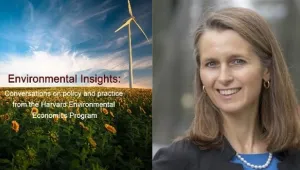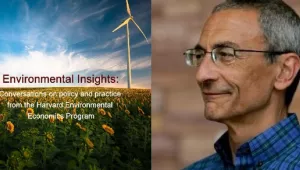Overview
Just days after the House passed its first ever comprehensive climate legislation aimed at curbing greenhouse gas emissions, former domestic policy advisor to Vice President Al Gore and U.S. Climate Task Force (CTF) co-founder Dr. Elaine C. Kamarck released a new paper that takes a close look at the full range of climate policies currently being debated.
Dr. Kamarck's paper explores some of the politics and pitfalls surrounding climate change policy, specifically carbon tax and cap-and-trade solutions. A carbon tax would directly tax the carbon content of fuels. A cap-and-trade system would set an overall cap for emissions and allow trading of emission permits between companies that more than meet their caps with those that don't. The analysis is intended to help decision makers and the public better understand some of the pros and cons associated with these particular climate policies.
Any meaningful solution to climate change will substantially increase the cost of traditional sources of energy, and thus a nation's overall energy bill. These costs are not insignificant and should be weighed carefully when considering which policy to pursue so as to mitigate the effects on economic activity, personal income and employment while also addressing climate change.
The most important conclusion of the paper is that the conventional wisdom about the politics of a cap-and-trade system need to be re-examined and the idea of a carbon tax resurrected.
Kamarck, Elaine. “Addressing the Risks of Climate Change: The Politics of the Policy Options.” U.S. Climate Task Force, June 2009





